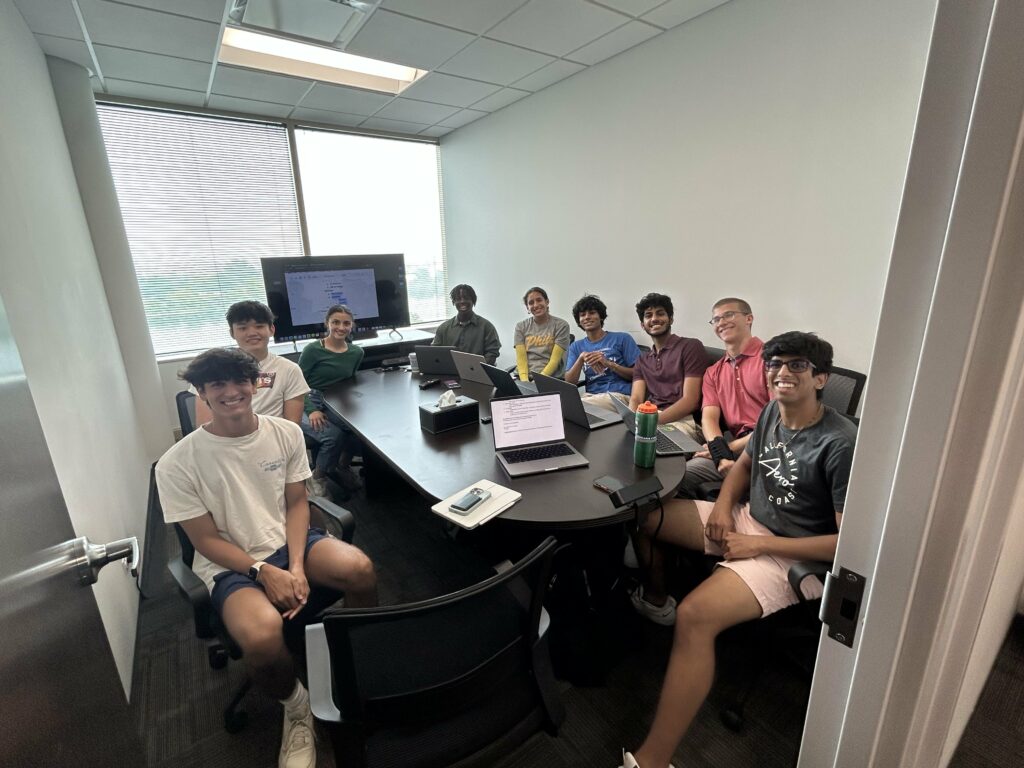How Technology Shapes Literacy Development in the Digital Age
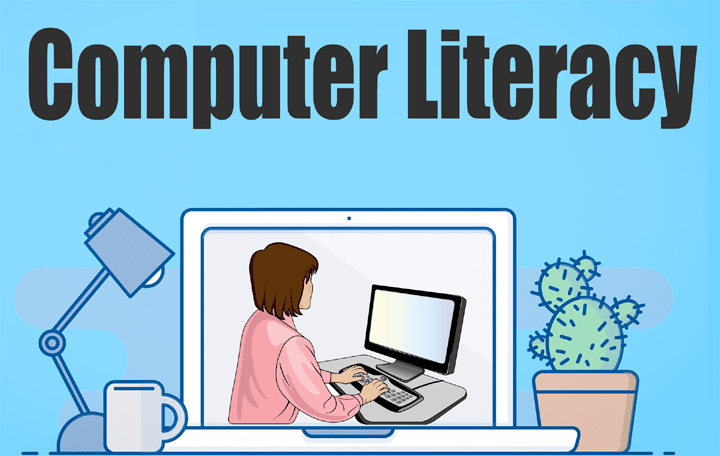
In the fast-evolving landscape of education, technology has become an indispensable tool for shaping literacy development, especially in regions like rural Africa. At Angaza Center, a nonprofit organization dedicated to empowering students in rural Africa through digital literacy education, we witness firsthand the transformative impact of technology on literacy skills. In this blog, we explore the dynamic relationship between technology and literacy, highlighting the role of nonprofit organizations in leveraging technology for educational purposes.
The Intersection of Technology and Literacy
Technology literacy, the ability to use, understand, and evaluate technology effectively, is increasingly recognized as a crucial skill in the 21st century. As we navigate the digital age, the traditional definition of literacy expands beyond reading and writing to encompass the proficient use of technology. In rural Africa, where access to educational resources may be limited, integrating technology into literacy programs is pivotal for fostering well-rounded skill sets among students.
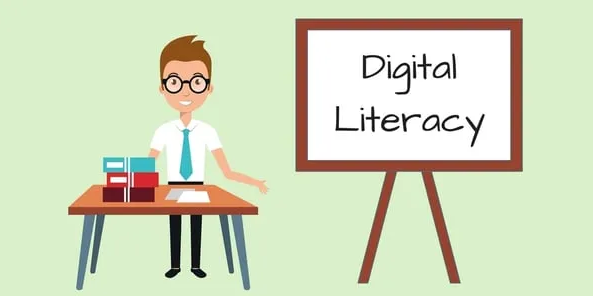
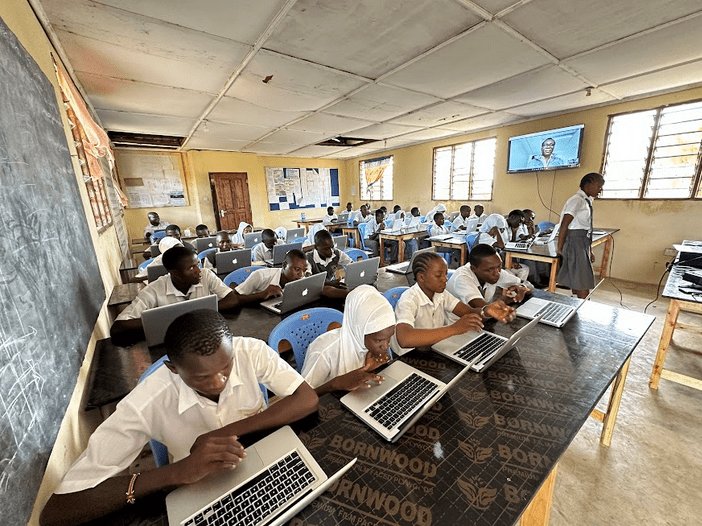
Empowering Students through Technology in Schools
One of the key aspects of our mission at Angaza Center is to introduce and integrate technology into schools in rural Africa. By doing so, we aim to bridge the digital divide and provide students with opportunities for enhanced learning experiences. Nonprofit organizations play a pivotal role in ensuring that technology is not a luxury but a tool for empowerment, especially in regions where resources are scarce.
In our programs, we have observed the positive impact of technology used in schools on students’ literacy development. Digital tools engage students in interactive and multimedia learning experiences, making the process more enjoyable and effective. Educational apps, interactive e-books, and online resources cater to diverse learning styles, enabling students to grasp concepts more comprehensively.
Moreover, exposure to technology in schools equips students with practical skills that are increasingly relevant in the modern workforce. Proficiency in using digital tools opens up new avenues for communication, collaboration, and problem-solving, essential skills for success in the 21st-century globalized economy.
Nonprofit Technology for Educational Equality
Nonprofit organizations specializing in technology literacy play a critical role in advocating for educational equality. By providing access to technology in underserved communities, these organizations contribute to breaking down barriers and creating opportunities for all students, regardless of their socio-economic background.
At Angaza Center, we understand that nonprofit technology initiatives go beyond the mere provision of hardware. It involves comprehensive programs that address digital literacy at its core. Our curriculum emphasizes not only the technical aspects of using devices but also the critical thinking and creativity required to navigate the digital landscape responsibly.
Through strategic partnerships and collaborations, nonprofit organizations can pool resources and expertise to amplify the impact of their initiatives. By working together, we can ensure that technology is not just a privilege for some but a fundamental right for every student.
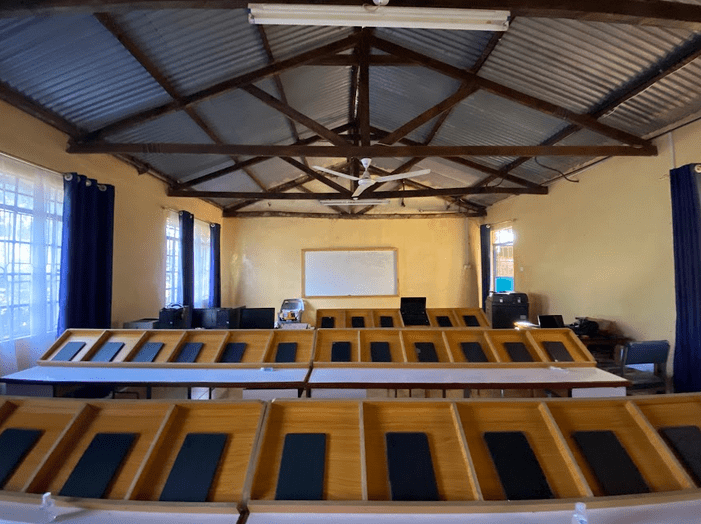

The Transformative Power of Nonprofit Technology
The transformative power of nonprofit technology is evident in the success stories of students who have benefited from digital literacy programs. These programs not only enhance basic literacy skills but also instill a sense of confidence and curiosity in students. As they navigate the digital world, students become active participants in the global conversation, breaking down geographical barriers and expanding their horizons.
Nonprofit organizations also play a crucial role in advocating for policy changes that support the integration of technology in education. By engaging with policymakers and stakeholders, we can influence decisions that prioritize technology as a catalyst for positive change in literacy development.
Support Digital Literacy – Donate Today
As we continue our journey at Angaza Center, we invite you to be part of our mission to empower students in rural Africa through digital literacy education. Your support can make a significant difference in providing access to technology, enhancing literacy skills, and preparing students for a future where technology literacy is not just a requirement but a necessity.
Donate today to support our nonprofit technology initiatives and contribute to shaping the future of literacy development in the digital age. Together, we can bridge the digital divide and empower students with the tools they need to thrive in an increasingly interconnected world.
In conclusion, the integration of technology into literacy development is a dynamic and transformative process. Nonprofit organizations play a vital role in ensuring that technology is not just a privilege for a few but a universal tool for empowerment. Through collaborative efforts and strategic initiatives, we can shape a future where every student has the opportunity to develop essential literacy skills in the digital age.
